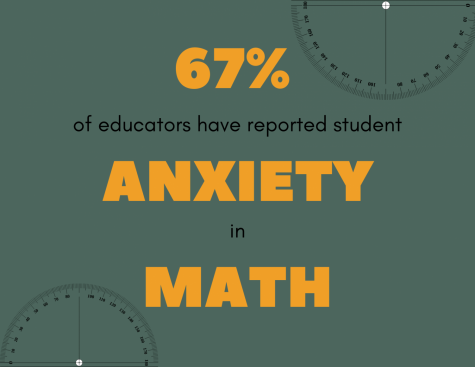Your donation will support the student journalists in the AVJournalism program. Your contribution will allow us to purchase equipment and cover our annual website hosting costs.
Zeroing in on Algebra
What makes learning math unique is that its advanced concepts directly use and build upon previous ones, so establishing a strong foundation is crucial. This linear progression of ideas gets blocked when students carry on knowledge gaps or mistakes from prior units.
“Math is this idea of a staircase where you can’t skip steps to get to the next level–you have to understand level one to understand level two, and if we miss the first one, we have to go back and make sure we understand level one so we get to level two,” said Riddle.
Math is this idea of a staircase where you can’t skip steps to get to the next level–you have to understand level one to understand level two, and if we miss the first one, we have to go back and make sure we understand level one so we get to level two.
— Kyle Riddle
Mandatory for all students to take in order to graduate, Algebra I is considered an essential “gatekeeper course” in math by educators in the U.S., as it establishes a foundation upon which more advanced math classes like calculus and statistics will build upon.
“It’s really hard to be successful in any future math class without those fundamental [algebra] skills–it’s like trying to write a sentence without knowing how to write any English words, or learning how to play an instrument without knowing how to hold it,” said Woodruff-Tropp.
After the abrupt switch from in-person to remote learning in March 2019, the current Algebra II students (then in Algebra I) missed some of the most vital unit concepts and skills that they’d need later on, such as graphing and solving quadratic equations.
“A lot of the things that are covered in the last few months [of Algebra I] are the things that we do everyday [in honors pre-calculus], and what we expect by the time students get to Algebra II is that they have known it and have been working with it for a year,” said Woodruff-Tropp. “And that wasn’t the case this year.”

With the Algebra I step of the math staircase broken, the rest of the pathway toppled. For many in the Algebra II course, the first few units, which in typical years were merely simple review from Algebra I, felt rushed and stressful. It’s not just Amador–67% of U.S. teachers reported student anxiety in their math classes.
“It felt like new material, and we didn’t have enough review, because many students in my class took [Algebra I] a year ago and don’t have that stability in algebra I because they finished it really fast with the cut-off in 2019,” said Gautam. “With the harder information which is coming my way, I have no basement for it, like there’s no ground to build it back up from.”
Unlike Gautam and her classmates, the Algebra I students coming in from Math 6 or Math 7/8 had yet to learn the most fundamental algebra skills taught in the class, so their teachers are able to present and cover new material in detail without having to worry about simultaneously teaching more advanced concepts.
“It’s like [the students are] learning the new material as we go, so it’s really not a huge difference from previous years,” said Allen. “The averages for the [Algebra I] tests to be honest are pretty similar to what they have always been, like a C average.”
As for the students in Honors Algebra II and higher math levels, like Pre-calculus and AP Calculus BC, overall grades barely differed from their predecessors. Teachers credit their students’ diligence and strong work ethic as the main reason for the strong grade continuity this semester.
“The Honors Pre-calculus students are doing incredibly well–they’re still showing mastery, and we’re going at pretty much the same speed with the same level of rigor that we have in years previously,” said Woodruff-Tropp. “That just goes to show how dedicated those groups of students are, [because] most students in these classes will work twice as hard if they have to.”